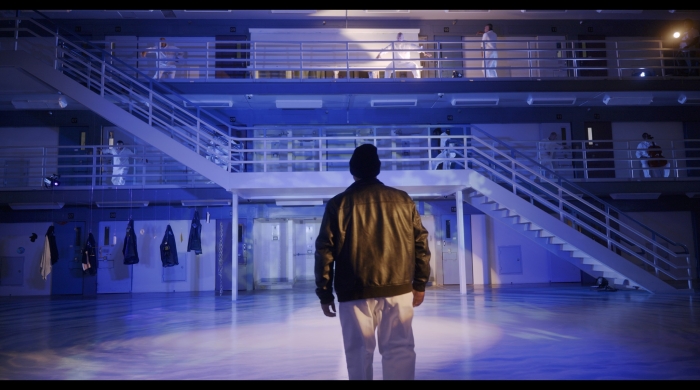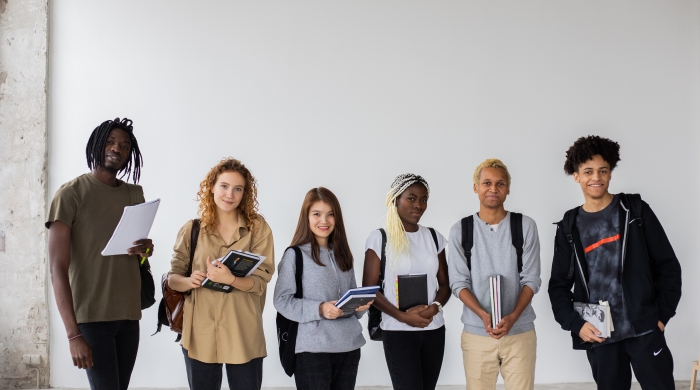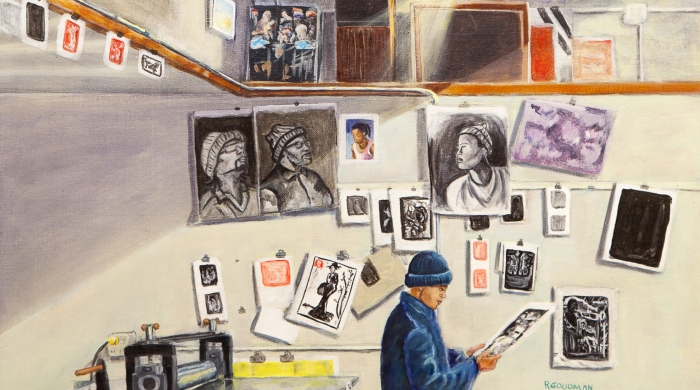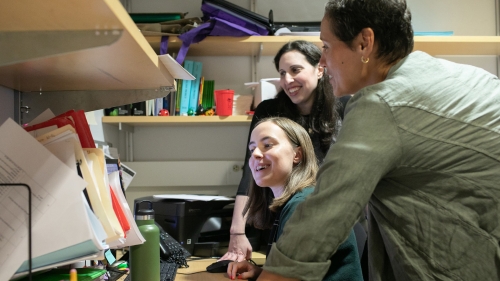ROSES (Resilience, Opportunity, Safety, Education, Strength) is a community- and research-based intervention that offers free legal advocacy to girls and female-identifying youth involved in the court system.
For over a decade, ROSES has been dedicated to learning more about the needs of this population, understanding how the system can better work for them, and disrupting the school-to-prison pipeline.
ROSES receives referrals for youth participants through a variety of pipelines, including New York City Administration for Children’s Services, the New York City Law Department’s juvenile justice division, and local hospitals and social workers. Referred youth are then given the option of entering the free ROSES program, which pairs them with an advocate who is a trained, supervised paraprofessional close to youth’s age. The advocates travel throughout the five boroughs to meet with participants where they are – in their communities or at potential court or discipline hearings – twice a week for 10 to 12 weeks.
Now run through NYU Steinhardt’s Metropolitan Center for Research on Equity and the Transformation of Schools, ROSES was designed by Shabnam Javdani, associate professor of applied psychology, while she was completing her doctoral work at the University of Illinois at Urbana-Champaign. When Javdani joined NYU’s faculty in 2012, ROSES made the move to New York City, too.
“When I came to New York and wanted to implement ROSES here, I did some reconnaissance interviews with folks in the court system to understand what they thought the needs were for girls and gender-expansive youth,” says Javdani. “In New York, a lot of decisions that go into confining girls under 18 in juvenile halls and detention centers have to do with ‘protecting her for her own good’ because of pregnancy or drug risk and are often aligned with poverty. This is a problem because these behavioral profiles are not consistent with the kinds of actions that people usually get incarcerated for.”

As a community-based alternative to other juvenile justice prevention efforts, such as residential treatment programs, ROSES quickly garnered plenty of support, including a $645,000 grant from the National Institute of Justice in 2015. These funds were used to launch an experimental study that enrolled 300 girls in ROSES over a three-year timeframe. Outcomes from that original study showed that program participants demonstrated less violence and reported missing fewer days of school than girls in the control group.
Over the years, Javdani has also run ROSES pilots in Philadelphia and New Jersey, and she recently received another three-year grant to create a “train the trainer” model to disseminate ROSES more broadly throughout New York State.
The advocates who work with ROSES participants are NYU students from applied psychology, public health, early childhood education, social work, sociology, business, and more. Their collaboration with participants and their families is based on a paraprofessional advocacy model developed with survivors of intimate partner violence.
“It feels great to have a program where the modality of working with young people is intensive, one-on-one, and community-based,” says Javdani. “NYU has an entire engaged population of students who want to do this kind of civic work, and they’re dedicated to helping each one of these young girls achieve her own self-determined goals.”
We help clients get their suspension and other disciplinary cases closed, which is a good way to stay away from system involvement and school pushout. But we also get to see the emotional benefits of developing self-advocacy skills and realizing that they have somebody in their corner.
Genevieve Sims (BS ’17, Applied Psychology and Global Public Health) became an advocate in ROSES as an undergraduate, partly due to her own involvement in the juvenile justice system when she was growing up.
“During my interview with ROSES, I told Shabnam that I had been in court as a teenager and grew up with adults around me also involved in the legal system,” says Sims, who is now a program supervisor at ROSES and oversees current advocates. “It felt so good to find a place where the experience I’d had in life was helpful to others, and I could use that wisdom to show my clients that they have value, too. It’s on-the-ground advocacy that is also a demonstration of support for these girls, whether we show up for them at their kitchen table or at a disciplinary hearing.”
“Working with my ROSES clients has changed me personally and professionally,” says Uma Guarnaccia (BS ’18, Applied Psychology), another former advocate and current program supervisor; she received her MA in Clinical Psychology from Northwestern University last year. “We help clients get their suspension and other disciplinary cases closed, which is a good way to stay away from system involvement and school pushout. But we also get to see the emotional benefits of developing self-advocacy skills and realizing that they have somebody in their corner.”
This article is the third in a series about decriminalization and decarceration at NYU Steinhardt.
Related Articles
Bringing the Voices of the Incarcerated into the Limelight
NYU Steinhardt alum creates a groundbreaking prison arts performance with help from the Educational Theatre program's Verbatim Performance Lab and students.
Disrupting the School-Prison Nexus in New York
Steinhardt researchers partner with NYU Law students to support children experiencing exclusionary discipline.
Art in the Age of Mass Incarceration Opens at The Schomburg Center
The exhibition, curated by Media, Culture, and Communication Professor Nicole Fleetwood, will be on view at the historic research library from May through December 2023.




